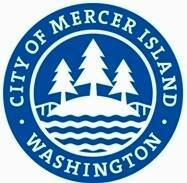At its Oct. 19 meeting, the Mercer Island City Council voted in favor of allocating $1,171,500 of American Rescue Plan Act (ARPA) funds to address immediate operational needs within the organization, including sewer and water projects.
City finance director Matt Mornick noted at the meeting that recommended operational investments — with a cost estimate through 2022 — featured $990,000 to cover Youth and Family Services (YFS) mental health and human services; $102,000 for half a limited term equivalent (LTE) through federal grant management through December 2022; and $80,000 for legal support related to the pandemic.
Merrill Thomas-Schadt, who has been helping track and administer various pandemic-related grant programs, said the city was allocated $7.23 million in ARPA funds, receiving $3.62 million in June 2021 and expecting the second half of the funds in June 2022.
“The city is required to commit or encumber the funds by December 2024 and fully expend the funds no later than December 2026,” she said.
Eligible uses of the funds include: investing in water, sewer and broadband; supporting public health expenditures; addressing local negative economic impacts; and replacing lost public sector revenue.
Also at the meeting, YFS Administrator Tambi Cork provided an emergency assistance update, highlighting a Mercer Island YFS Foundation $80,000 donation in July that fully funded the Back to School Program (which focused on backpacks, school supplies, shoes and clothes) and filled a gap in the 2021 food pantry funds.
She also thanked local organizations, businesses and foundations for allocating funds for YFS programs, which include emergency assistance, community- and school-based counseling, senior services, Healthy Youth Initiative and the thrift shop.
Additionally, she said YFS is grateful for the city council earmarking House Bill 1406 funds in 2020 to the YFS rental assistance program, which has amounted to about $35,000 a year.
Through its emergency assistance program — which was one of the first programs YFS established when it was launched in the 1970s — YFS offers case management to support long-term plans for financial stability; referral to local, regional and national resources; limited rent and utility assistance; low-cost health insurance; medical care referrals and more.
“We continue to adapt, we continue to expect that the pandemic we know is not over,” Cork said. “We’re not sure exactly what that will bring from an emergency assistance perspective, but staff are remaining aware, remaining nimble and are seeking ways to continually adapt our programming to best meet the needs of our community members.”


